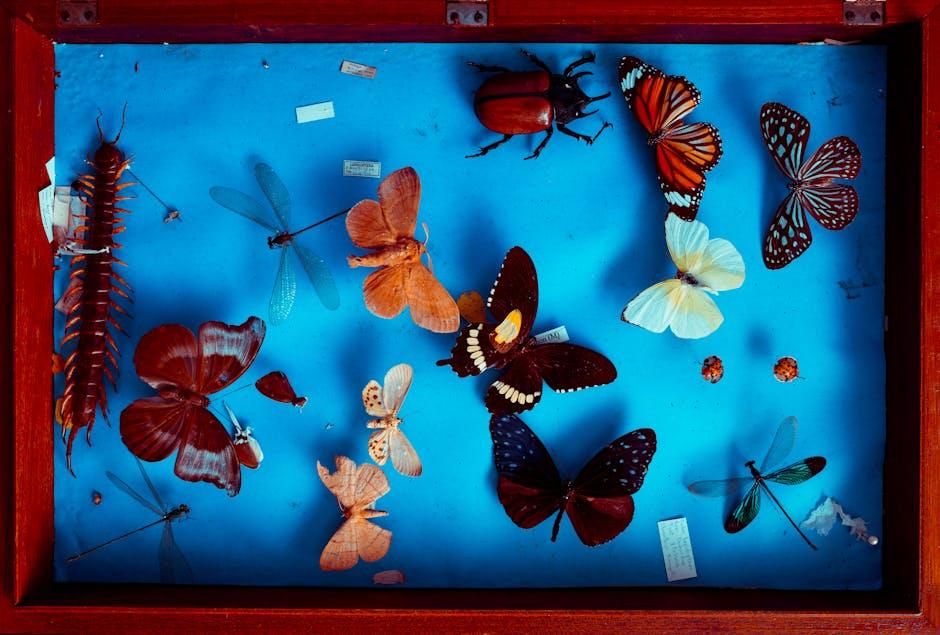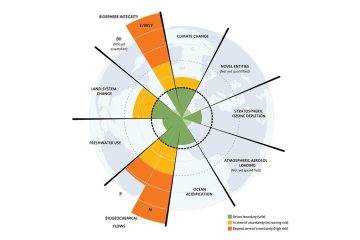In the vast cosmos, where celestial bodies dance in a delicate balance, lies a realm of interconnectedness that shapes the very fabric of our existence – planetary ecology. Delving into the intricate web of relationships between planets and their diverse ecosystems unveils a tapestry of wonders waiting to be unraveled. Join us on a journey through the cosmos as we explore the intricate harmony of planetary ecology and the mysteries it holds for the curious minds of Earth.
Table of Contents
- Exploring Planetary Ecology: Understanding Interconnected Ecosystems
- Preserving Biodiversity: Strategies for Sustainable Coexistence
- Climate Change Mitigation: Adapting for a Greener Future
- Empowering Communities: Collaborative Solutions for Planetary Health
- Q&A
- Concluding Remarks
Exploring Planetary Ecology: Understanding Interconnected Ecosystems
In the vast expanse of the cosmos, planets harbor intricate ecosystems where life thrives in a delicate balance of interconnected relationships. Each species, from the tiniest microbe to the mightiest predator, plays a vital role in shaping the planetary ecology. Biodiversity serves as the cornerstone, weaving a tapestry of life forms that adapt, evolve, and coexist in harmonious synergy.
Within these ecosystems, the cycle of birth and decay fuels the perpetual dance of renewal. From the lush forests teeming with diverse flora and fauna to the barren deserts where resilient organisms eke out a living, the planetary ecology showcases the resilience and fragility of life on a global scale. Interdependence emerges as a central theme, illustrating how every organism, every habitat, is interconnected, influencing one another in profound ways that echo throughout the cosmos.
| Key Aspect | Importance |
|---|---|
| Biodiversity | Essential for ecosystem stability |
| Interdependence | Highlighting the web of life connections |

Preserving Biodiversity: Strategies for Sustainable Coexistence
In today’s fast-paced world, the delicate balance of planetary ecology is under threat like never before. To ensure the preservation of biodiversity and promote sustainable coexistence, it’s crucial to implement strategic initiatives that harmonize human activities with the environment.
One key strategy is the promotion of habitat preservation through the establishment of protected areas such as national parks, marine reserves, and wildlife sanctuaries. These designated zones serve as safe havens for various species, allowing them to thrive without the interference of human development. Additionally, fostering community engagement and education programs can raise awareness about the importance of biodiversity and encourage local participation in conservation efforts. By working together towards a common goal, we can create a future where humans and nature coexist in harmony, safeguarding the diverse ecosystems that support life on Earth.
| Biodiversity | Preservation Method |
|---|---|
| Endangered Species | Reintroduction Programs |
| Native Plants | Habitat Restoration Projects |

Climate Change Mitigation: Adapting for a Greener Future
In order to combat the pressing issue of climate change, it is imperative that we embrace sustainable practices that promote environmental well-being. By implementing innovative solutions and fostering a mindset of eco-consciousness, we can pave the way for a more sustainable future for generations to come. From sustainable energy sources to reforestation efforts, every small step towards a greener tomorrow makes a significant impact on our planet’s ecological balance.
Embracing a greener future involves a collective effort from individuals, communities, and governments worldwide. By investing in renewable energy technologies, promoting recycling initiatives, and advocating for wildlife conservation, we can work together to mitigate the effects of climate change and preserve the delicate balance of our planetary ecology. Let’s join forces in creating a more sustainable world where harmony between humans and nature is at the forefront of our collective consciousness.

Empowering Communities: Collaborative Solutions for Planetary Health
In today’s interconnected world, the concept of planetary health has never been more critical. As we strive towards a sustainable future, it’s essential to explore collaborative solutions that empower communities to take action. By harnessing the collective wisdom and efforts of individuals, organizations, and policymakers, we can pave the way for a healthier planet for current and future generations.
Key Aspects of Collaborative Solutions for Planetary Health:
- Community Engagement: Fostering a sense of ownership and responsibility within communities to drive positive environmental change.
- Innovation: Encouraging the development and adoption of novel technologies and practices to address ecological challenges effectively.
- Education: Equipping individuals with the knowledge and skills needed to make informed decisions that benefit both people and the planet.
Sample Data Table:
| Initiatives | Partners | Impact |
|---|---|---|
| Recycling Programs | Local NGOs | Reduced waste generation |
| Green Energy Projects | Government Agencies | Lower carbon footprint |
| Reforestation Campaigns | Corporate Sponsors | Enhanced biodiversity |
Q: What is planetary ecology, and why is it important?
A: Planetary ecology is the study of how living organisms interact with each other and their environment on a global scale. It seeks to understand the interconnectedness of all life forms and their impact on the health and sustainability of our planet. It is crucial as it provides insights into how we can better care for our Earth and preserve its delicate ecosystems for future generations.
Q: How does planetary ecology differ from traditional ecology?
A: While traditional ecology focuses on individual ecosystems or species interactions, planetary ecology takes a broader perspective, considering the entire planet as a single interconnected system. It looks at how different ecosystems are linked and how human activities can have far-reaching consequences on a global scale.
Q: What are some of the key challenges facing planetary ecology today?
A: Climate change, deforestation, loss of biodiversity, and pollution are among the main challenges facing planetary ecology. These issues threaten the balance of our ecosystems, endangering countless species and putting the well-being of humanity at risk. Addressing these challenges requires collective action and a deep understanding of how our actions impact the planet.
Q: How can individuals contribute to planetary ecology conservation efforts?
A: There are several ways individuals can contribute to planetary ecology conservation efforts. This includes reducing waste, using renewable energy sources, supporting sustainable practices, advocating for environmental protection policies, and raising awareness about the importance of preserving our planet’s biodiversity. Every small action can make a big difference in safeguarding the health of our Earth.
Q: What role does technology play in advancing planetary ecology research?
A: Technology plays a crucial role in advancing planetary ecology research by providing scientists with innovative tools to monitor and analyze ecosystems on a global scale. Remote sensing, data analytics, and modeling techniques help researchers gain insights into complex ecological processes and make informed decisions to mitigate environmental challenges. By leveraging technology, we can deepen our understanding of planetary ecology and develop effective strategies for conservation and sustainability.
Concluding Remarks
As we gaze up at the stars twinkling in the vast expanse of the night sky, it becomes clear that our home, planet Earth, is a precious and fragile ecosystem that sustains all life as we know it. The intricate web of interconnected life forms, natural processes, and environmental factors that shape our planetary ecology is a masterpiece worth cherishing and protecting.
Let us remember that we are stewards of this incredible planet, entrusted with the responsibility to nurture and preserve its biodiversity, resources, and balance. As we explore the depths of space and study the wonders of distant worlds, may we never forget the beauty and complexity of our own planetary ecology right here at home.
Together, let us strive to make sustainable choices, promote conservation efforts, and advocate for policies that prioritize the health and well-being of our planet. By working hand in hand, we can ensure a harmonious coexistence with nature and secure a bright future for generations to come. Let’s protect our planetary ecology, for it is not just our home, but a shared legacy for all life on Earth.



0 Comments